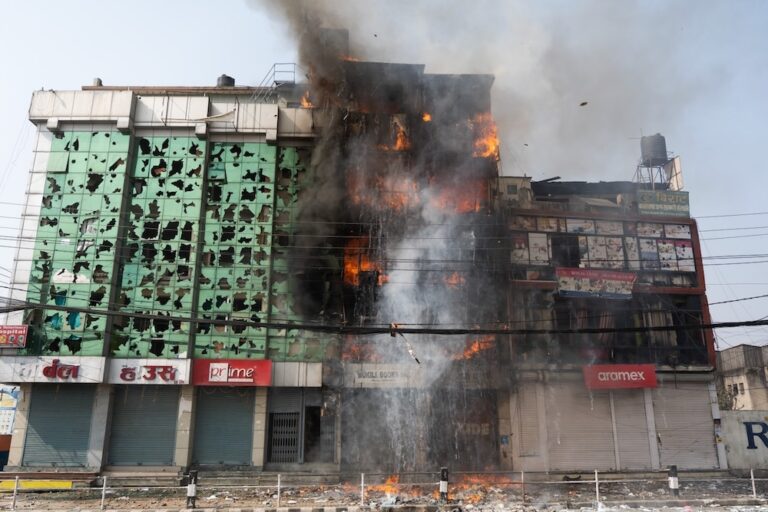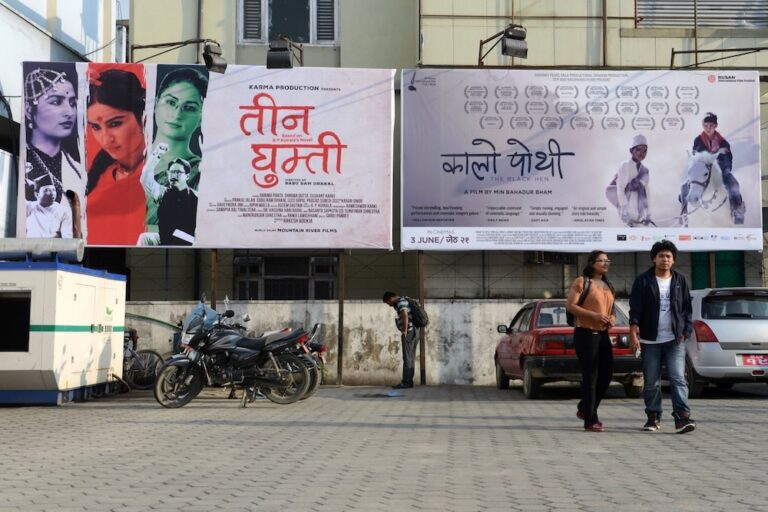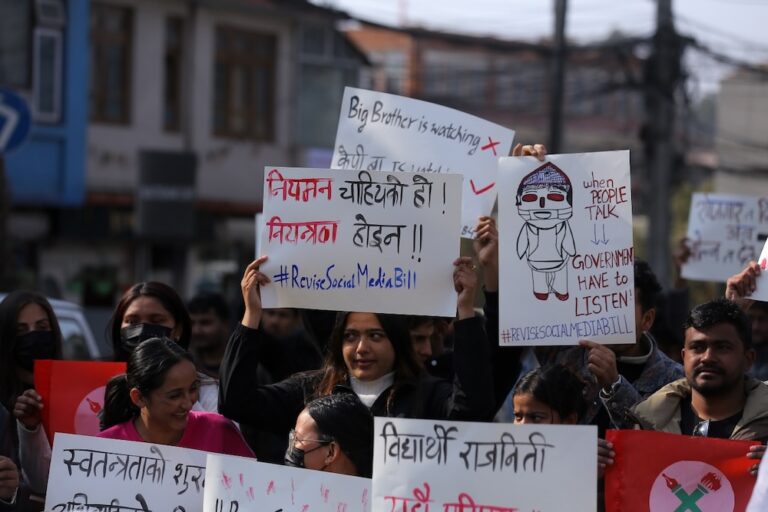(CEHURDES/IFEX) – On 24 March 2003, the authorities released journalist Shiva Tiwari, executive editor of “Janadisha” daily, after 10 months’ detention. On the same day, the Supreme Court ordered Tiwari’s release for the third time. Tiwari was formerly associated with the “Hank” and “Mahima” weeklies. He was arrested on 20 May 2002 in Kathmandu along […]
(CEHURDES/IFEX) – On 24 March 2003, the authorities released journalist Shiva Tiwari,
executive editor of “Janadisha” daily, after 10 months’ detention. On the same day, the Supreme Court ordered Tiwari’s release for the third time. Tiwari was formerly associated with the “Hank” and “Mahima” weeklies. He was arrested on 20 May 2002 in Kathmandu along with Krishna Sen, who reportedly died in early June 2002 as a result of extensive torture by the security forces while in their custody (see IFEX alerts of 22 and 16 October, 27 and 8 August, 12 and 2 July, 26 June and 22 May 2002).
After his release, Tiwari told CEHURDES that he was tortured until 23 August 2002 in various police stations and military barracks. Tiwari said he was sent to the District Police Office at Hanuman Dhoka on 23 August and was transferred to Bhadra Bandi Griha (located near the
central jail) two days later.
Following two previous Supreme Court orders for Tiwari’s release, on 21 November and 18 February, he was immediately rearrested outside the prison after his release.
He was released in the presence of human rights activists, lawyers, family members and the co-editor of the “Dishabodh Monthly” magazine.
CEHURDES welcomes Tiwari’s release and urges the authorities to release all remaining journalists in detention and to respect press freedom and freedom of expression. CEHURDES further asks for action to be taken against the officials who were involved in torturing Tiwari.
Background Information
Following the imposition of a state of emergency on 26 November 2001, more than 150 journalists were arrested in different parts of the country. The state of emergency was lifted on 29 August 2002, but more than a dozen journalists remain in detention. Some journalists have reportedly been
physically and psychologically tortured. Several detainees’ whereabouts are unknown. There have been no reports of official charges filed against any of the detained journalists.
The security forces allegedly killed editor Krishna Sen in June 2002 after torturing him in custody. Maoist rebels murdered journalist Nawaraj Sharma (see alerts of 23 and 22 August 2002), and journalist Ambika Timsina was killed on 12 December by unknown assailants (see alert of 20 December 2002). The rebels also abducted journalists Demling Lama and Dhan Bahadur Roka (see alerts of 11 and 9 April 2002). Lama managed to escape but Roka’s whereabouts remain unknown.
On 4 October, King Gyanendra assumed all executive powers by sacking Prime Minister Sher Bahadur Deuba. Elections scheduled for 13 November were postponed for an indefinite period. On 11 October, the king appointed a government under monarchist Prime Minister Lokendra Bahadur Chand, granting him limited powers.
On 29 January 2003, the government and Maoists rebels declared a cease-fire for the second time. The first cease-fire had been broken in November 2001 after three rounds of talks.
Since February 1996, CPN-Maoist rebels have been fighting to establish a “people’s republic” and abolish Nepal’s constitutional monarchy. More than 7,000 people have lost their lives in the conflict. Nearly half of the victims were killed after the state of emergency declaration.


